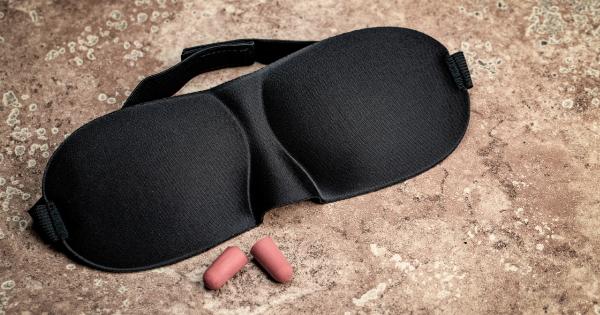Levoptosis, also known as photic sneeze reflex (PSR), is the uncontrollable sneeze that occurs in response to exposure to bright light. It is a genetically inherited condition that affects around 18-35% of the population in varying degrees.
The reflex is caused by the misfiring of the trigeminal nerve in the face, which can lead to a range of symptoms from mild sneezing to more severe consequences. Here is a closer look at the deadly nature of levoptosis.
The Causes of Levoptosis
Levoptosis is typically caused by exposure to bright light, particularly when moving from a dim environment to a bright one. The reflex can be triggered by a range of light sources, including sunlight, camera flashes, and bright overhead lights.
The exact cause of photic sneezing is not fully understood, but it is believed to be related to a genetic mutation that changes the way the brain processes sensory information.
The Symptoms of Levoptosis
The symptoms of levoptosis can vary from person to person, but the most common symptom is a sudden and uncontrollable sneeze. Many people only sneeze once or twice, but some may experience a rapid succession of sneezes that can be quite severe.
Other symptoms may include watery eyes, runny nose, congestion, and headaches.
The Dangers of Levoptosis
While levoptosis itself is not a life-threatening condition, it can be dangerous in certain situations. For example, if you are driving and suddenly sneeze multiple times in rapid succession, it could distract you and lead to an accident.
Additionally, levoptosis can sometimes be a symptom of an underlying neurological condition, such as epilepsy or multiple sclerosis.
The Treatment of Levoptosis
There is no cure for levoptosis, but there are several things that can help manage the symptoms. Some people find that wearing sunglasses or avoiding bright light can reduce their chances of sneezing.
Others may benefit from over-the-counter antihistamines or nasal sprays. If you experience frequent and severe sneezing, it is important to talk to your doctor to rule out any underlying conditions.
Preventing Levoptosis
Preventing levoptosis can be challenging because it is a genetically inherited condition. However, there are a few things that can help reduce the frequency and severity of the reflex.
These include avoiding sudden changes in light conditions, wearing sunglasses when going outdoors, and staying hydrated to prevent dehydration.
Living with Levoptosis
Living with levoptosis can be frustrating, but it is possible to manage the symptoms and lead a healthy life.
If you have a job that requires you to work outdoors or under bright lights, speak with your employer about accommodations that might help reduce your sneezing. Additionally, it can be helpful to carry tissues and nasal sprays with you in case of a sudden sneezing episode.
Conclusion
Levoptosis is a relatively common condition that affects many people in different ways. While the reflex itself is not dangerous, it can sometimes be a sign of an underlying condition that requires treatment.
If you experience frequent and severe sneezing, it is important to talk to your doctor. With the right treatment and management techniques, it is possible to live a healthy and active life with levoptosis.































